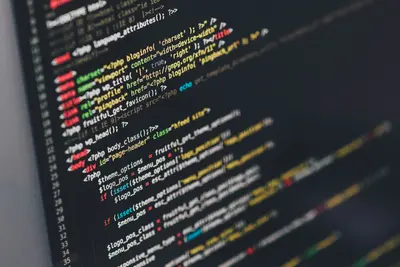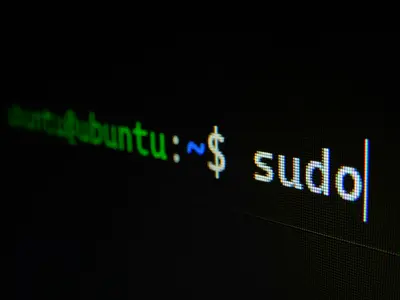🔍 AlmaLinux Troubleshooting & Debugging: Complete System Diagnostics Guide
Welcome to the ultimate AlmaLinux troubleshooting adventure! 🚀 Whether you’re dealing with mysterious boot failures, sluggish performance, or network gremlins, this comprehensive guide will transform you into a system detective who can solve any Linux mystery. Let’s dive into the exciting world of system diagnostics and debugging! 🕵️♂️
Every AlmaLinux administrator needs rock-solid troubleshooting skills to keep systems running smoothly. From analyzing cryptic log files to diagnosing hardware issues, we’ll explore every tool and technique you need to become a troubleshooting master! 💪
🤔 Why Master AlmaLinux Troubleshooting?
Exceptional troubleshooting skills are your superpower in system administration! 🦸♀️ Here’s why these diagnostic abilities are absolutely crucial:
- 🚨 Rapid Problem Resolution - Fix issues before they impact users and services
- 💰 Minimize Downtime Costs - Every minute of uptime saves money and reputation
- 🔍 Deep System Understanding - Learn how AlmaLinux works under the hood
- 🛡️ Proactive Maintenance - Identify problems before they become critical
- 📊 Performance Optimization - Discover bottlenecks and optimization opportunities
- 🎯 Root Cause Analysis - Fix problems permanently instead of applying band-aids
- 🚀 Career Advancement - Become the go-to expert everyone relies on
🎯 What You Need
Let’s prepare your troubleshooting toolkit for maximum effectiveness! ✅
System Requirements:
- ✅ AlmaLinux 8.x or 9.x installation with root access
- ✅ Basic command line familiarity and navigation skills
- ✅ Understanding of Linux file system structure and permissions
- ✅ Network connectivity for downloading diagnostic tools
- ✅ At least 2GB free disk space for logs and tools
Essential Tools We’ll Install:
- ✅ System monitoring utilities (htop, iostat, sar)
- ✅ Network diagnostic tools (tcpdump, netstat, ss)
- ✅ Log analysis tools (journalctl, logwatch, rsyslog)
- ✅ Performance profiling tools (perf, strace, lsof)
- ✅ Hardware diagnostic utilities (lshw, smartctl, dmidecode)
📝 Setting Up Your Diagnostic Environment
Let’s create the perfect troubleshooting workspace with all essential tools! 🔧
Installing Diagnostic Tool Suite
# Update system packages first
sudo dnf update -y
# Install essential system monitoring tools
sudo dnf install -y htop iotop iftop nethogs glances
# Install network diagnostic utilities
sudo dnf install -y tcpdump wireshark-cli nmap-ncat bind-utils
# Install performance analysis tools
sudo dnf install -y sysstat perf strace ltrace
# Install hardware diagnostic tools
sudo dnf install -y lshw smartmontools dmidecode
# Install log analysis utilities
sudo dnf install -y logwatch rsyslog-gnutlsCreating Diagnostic Scripts Directory
# Create organized workspace for troubleshooting
sudo mkdir -p /opt/diagnostics/{scripts,logs,reports}
sudo chown -R $USER:$USER /opt/diagnostics
# Create quick diagnostic script
cat > /opt/diagnostics/scripts/quick-check.sh << 'EOF'
#!/bin/bash
# Quick system health check script
echo "=== AlmaLinux System Health Check ==="
echo "Date: $(date)"
echo
echo "=== System Uptime ==="
uptime
echo
echo "=== Memory Usage ==="
free -h
echo
echo "=== Disk Usage ==="
df -h
echo
echo "=== CPU Load ==="
top -bn1 | head -10
echo
echo "=== Recent System Logs ==="
journalctl -p err -n 10 --no-pager
EOF
chmod +x /opt/diagnostics/scripts/quick-check.sh🔧 System Boot Troubleshooting
Master the art of diagnosing and fixing boot problems! 💡
Analyzing Boot Process
# Check boot messages and errors
sudo journalctl -b 0 --no-pager
# Review previous boot attempts
sudo journalctl --list-boots
# Check specific boot logs
sudo journalctl -b -1 --no-pager # Previous boot
# Analyze kernel messages
sudo dmesg | grep -i error
sudo dmesg | grep -i warning
sudo dmesg | grep -i failGRUB Troubleshooting
# Rebuild GRUB configuration
sudo grub2-mkconfig -o /boot/grub2/grub.cfg
# Check GRUB installation
sudo grub2-install --version
sudo grub2-probe --target=device /boot/grub2
# Backup and verify GRUB config
sudo cp /boot/grub2/grub.cfg /boot/grub2/grub.cfg.backup
sudo grub2-script-check /boot/grub2/grub.cfg
# Check boot partition
sudo blkid | grep boot
sudo fsck -n /dev/sda1 # Replace with your boot partitionEmergency Boot Recovery
# Create emergency boot diagnostic script
cat > /opt/diagnostics/scripts/boot-recovery.sh << 'EOF'
#!/bin/bash
# Emergency boot recovery checks
echo "=== Boot Recovery Diagnostics ==="
echo "=== Checking File Systems ==="
sudo fsck -n /dev/sda1 # Check without fixing
sudo fsck -n /dev/sda2
echo "=== GRUB Status ==="
sudo grub2-probe --target=device /
sudo grub2-probe --target=fs /boot
echo "=== Kernel Information ==="
uname -a
ls -la /boot/vmlinuz*
echo "=== Boot Messages ==="
sudo journalctl -b 0 | grep -i "failed\|error\|panic"
EOF
chmod +x /opt/diagnostics/scripts/boot-recovery.sh🌟 Performance Diagnostics
Become a performance detective and solve system slowdowns! 🕵️♂️
CPU Performance Analysis
# Real-time CPU monitoring
htop # Interactive process viewer
# CPU usage statistics
iostat -c 1 5 # CPU stats every second for 5 intervals
# Detailed CPU information
lscpu
cat /proc/cpuinfo
# CPU load analysis
uptime
cat /proc/loadavg
# Process CPU usage
ps aux --sort=-%cpu | head -10
# CPU performance profiling
sudo perf top # Real-time CPU profiling
sudo perf stat -a sleep 10 # System-wide stats for 10 secondsMemory Diagnostics
# Memory usage analysis
free -h # Human-readable memory info
cat /proc/meminfo # Detailed memory statistics
# Memory usage by process
ps aux --sort=-%mem | head -10
# Virtual memory statistics
vmstat 1 5 # Report every second for 5 intervals
# Memory map analysis
sudo pmap -x $$ # Memory map of current shell
# Check for memory leaks
cat > /opt/diagnostics/scripts/memory-monitor.sh << 'EOF'
#!/bin/bash
# Monitor memory usage over time
LOGFILE="/opt/diagnostics/logs/memory-$(date +%Y%m%d).log"
while true; do
echo "$(date): $(free -m | grep '^Mem:' | awk '{print $3"/"$2" MB used"}')" >> $LOGFILE
sleep 60
done
EOF
chmod +x /opt/diagnostics/scripts/memory-monitor.shStorage Performance Analysis
# Disk I/O monitoring
iostat -x 1 5 # Extended I/O stats
# Disk usage by directory
du -sh /* 2>/dev/null | sort -hr
# Find large files
find / -type f -size +100M 2>/dev/null | head -10
# Disk health check
sudo smartctl -a /dev/sda # SMART disk health
# I/O latency testing
sudo dd if=/dev/zero of=/tmp/testfile bs=1M count=1000 oflag=direct
sudo rm /tmp/testfile
# Filesystem check
sudo fsck -n /dev/sda1 # Check without fixing✅ Network Troubleshooting
Solve network mysteries and connectivity issues! 🌐
Network Connectivity Diagnostics
# Basic connectivity testing
ping -c 4 google.com
ping -c 4 8.8.8.8
# DNS resolution testing
nslookup google.com
dig google.com
# Route tracing
traceroute google.com
mtr google.com # Better traceroute
# Network interface status
ip addr show
ip route show
nmcli device statusPort and Service Analysis
# Active network connections
ss -tuln # Modern netstat replacement
netstat -tuln # Traditional approach
# Service port checking
ss -tulpn | grep :22 # SSH service
ss -tulpn | grep :80 # HTTP service
# Firewall status
sudo firewall-cmd --list-all
sudo iptables -L -n
# Network traffic monitoring
sudo nethogs # Per-process bandwidth usage
sudo iftop # Interface traffic monitoringNetwork Packet Analysis
# Capture network packets
sudo tcpdump -i eth0 host google.com
sudo tcpdump -i any port 22
# Analyze specific protocols
sudo tcpdump -i eth0 'tcp port 80'
sudo tcpdump -i eth0 'udp port 53'
# Create network diagnostic script
cat > /opt/diagnostics/scripts/network-check.sh << 'EOF'
#!/bin/bash
# Comprehensive network diagnostics
echo "=== Network Interface Status ==="
ip addr show
echo "=== Routing Table ==="
ip route show
echo "=== DNS Configuration ==="
cat /etc/resolv.conf
echo "=== Active Connections ==="
ss -tuln
echo "=== Firewall Status ==="
sudo firewall-cmd --list-all
echo "=== Connectivity Tests ==="
ping -c 3 8.8.8.8
ping -c 3 google.com
EOF
chmod +x /opt/diagnostics/scripts/network-check.sh🎮 Log Analysis Examples
Master the art of reading system logs and finding clues! 📚
Example 1: Analyzing Authentication Failures
# Check failed login attempts
sudo journalctl -u sshd | grep "Failed password"
# Authentication log analysis
sudo grep "authentication failure" /var/log/secure
# Detailed SSH connection logs
sudo journalctl -u sshd --since "1 hour ago"
# Create authentication monitor
cat > /opt/diagnostics/scripts/auth-monitor.sh << 'EOF'
#!/bin/bash
# Monitor authentication events
echo "=== Recent Authentication Failures ==="
sudo journalctl -u sshd | grep "Failed password" | tail -10
echo "=== Successful Logins ==="
sudo journalctl | grep "session opened" | tail -5
echo "=== Suspicious Activity ==="
sudo grep "Invalid user" /var/log/secure 2>/dev/null | tail -5
EOF
chmod +x /opt/diagnostics/scripts/auth-monitor.shExample 2: Service Failure Investigation
# Check service status and logs
sudo systemctl status httpd
sudo journalctl -u httpd --no-pager
# Service dependency analysis
sudo systemctl list-dependencies httpd
# Configuration file validation
sudo httpd -t # Test Apache configuration
sudo nginx -t # Test Nginx configuration
# Service troubleshooting script
cat > /opt/diagnostics/scripts/service-debug.sh << 'EOF'
#!/bin/bash
# Debug service issues
SERVICE=$1
if [ -z "$SERVICE" ]; then
echo "Usage: $0 <service-name>"
exit 1
fi
echo "=== Service Status ==="
sudo systemctl status $SERVICE
echo "=== Recent Service Logs ==="
sudo journalctl -u $SERVICE --no-pager -n 20
echo "=== Service Dependencies ==="
sudo systemctl list-dependencies $SERVICE
echo "=== Service Configuration ==="
sudo systemctl show $SERVICE | grep -E "(ExecStart|ExecReload|ExecStop)"
EOF
chmod +x /opt/diagnostics/scripts/service-debug.shExample 3: Kernel and Hardware Issues
# Kernel message analysis
sudo dmesg | grep -i error
sudo dmesg | grep -i warning
# Hardware error detection
sudo journalctl | grep -i "hardware error"
sudo mcelog # Machine check logs if available
# Hardware diagnostic script
cat > /opt/diagnostics/scripts/hardware-check.sh << 'EOF'
#!/bin/bash
# Hardware diagnostics
echo "=== CPU Information ==="
lscpu
echo "=== Memory Information ==="
sudo dmidecode --type memory | grep -A5 "Memory Device"
echo "=== Storage Devices ==="
lsblk
sudo smartctl -a /dev/sda | grep -E "(Model|Serial|Health|Temperature)"
echo "=== PCI Devices ==="
lspci | head -10
echo "=== Hardware Errors ==="
sudo dmesg | grep -i "hardware error"
EOF
chmod +x /opt/diagnostics/scripts/hardware-check.sh🚨 Common Problem Solutions
Let’s solve the most frequent AlmaLinux issues! 🛠️
Problem 1: High CPU Usage
Symptoms: System feels slow, high load averages, fan noise Solution:
# Identify CPU-intensive processes
top -c
ps aux --sort=-%cpu | head -10
# Kill problematic processes
sudo kill -TERM <PID> # Graceful termination
sudo kill -KILL <PID> # Force kill if needed
# Prevent runaway processes
sudo systemctl edit <service> # Add resource limitsProblem 2: Memory Exhaustion
Symptoms: System freezing, out of memory errors, swap usage Solution:
# Free up memory immediately
sudo sync
echo 3 | sudo tee /proc/sys/vm/drop_caches
# Identify memory hogs
sudo ps aux --sort=-%mem | head -10
# Configure swap if needed
sudo fallocate -l 2G /swapfile
sudo chmod 600 /swapfile
sudo mkswap /swapfile
sudo swapon /swapfileProblem 3: Disk Space Issues
Symptoms: “No space left on device” errors, slow file operations Solution:
# Find large files and directories
sudo du -sh /* 2>/dev/null | sort -hr | head -10
sudo find / -type f -size +100M 2>/dev/null
# Clean up space
sudo dnf clean all # Clean package cache
sudo journalctl --vacuum-time=7d # Clean old logs
sudo find /tmp -type f -atime +7 -delete # Old temp filesProblem 4: Network Connectivity Issues
Symptoms: Cannot reach websites, DNS resolution fails Solution:
# Reset network configuration
sudo systemctl restart NetworkManager
sudo nmcli connection reload
# Check DNS configuration
cat /etc/resolv.conf
sudo systemctl restart systemd-resolved
# Flush DNS cache
sudo systemctl flush-dnsProblem 5: Service Start Failures
Symptoms: Services won’t start, dependency errors Solution:
# Check service dependencies
sudo systemctl list-dependencies <service>
# Reload systemd configuration
sudo systemctl daemon-reload
# Reset failed services
sudo systemctl reset-failed
sudo systemctl start <service>📋 Quick Diagnostic Commands Summary
Essential troubleshooting commands at your fingertips! ⚡
| Purpose | Command | Description |
|---|---|---|
| System Health | uptime | System load and uptime |
| Memory | free -h | Memory usage summary |
| Disk | df -h | Disk space usage |
| Processes | htop | Interactive process monitor |
| Network | ss -tuln | Network connections |
| Logs | journalctl -f | Follow system logs |
| CPU | iostat -c 1 5 | CPU statistics |
| I/O | iostat -x 1 5 | Disk I/O statistics |
| Hardware | lshw -short | Hardware summary |
| Services | systemctl status | Service status |
💡 Troubleshooting Best Practices
Become a systematic debugging expert! 🎯
- 🔍 Start with the Obvious - Check simple things first before diving deep
- 📝 Document Everything - Keep detailed logs of what you try and results
- 🎯 Isolate Variables - Change one thing at a time to identify root causes
- 🔄 Test Systematically - Verify each fix before moving to the next issue
- 📊 Use Monitoring Tools - Set up continuous monitoring to catch issues early
- 🛡️ Make Backups First - Always backup configurations before making changes
- 📚 Learn from Logs - System logs contain the answers to most problems
- 🤝 Ask for Help - Don’t hesitate to consult documentation and communities
- ⏰ Work Methodically - Rushed debugging often creates more problems
- 🎨 Create Runbooks - Document solutions for common problems
🏆 What You’ve Accomplished
Congratulations on mastering AlmaLinux troubleshooting! 🎉 You now have:
- ✅ Comprehensive diagnostic toolkit installed and configured
- ✅ Boot troubleshooting expertise for fixing startup problems
- ✅ Performance analysis skills to identify and resolve bottlenecks
- ✅ Network diagnostic abilities for connectivity issue resolution
- ✅ Log analysis mastery to find clues in system messages
- ✅ Common problem solutions for frequent AlmaLinux issues
- ✅ Systematic troubleshooting approach for complex problems
- ✅ Emergency recovery procedures for critical system failures
- ✅ Monitoring and alerting setup for proactive issue detection
- ✅ Documentation and runbook creation for team knowledge sharing
🎯 Why These Skills Matter
Your troubleshooting expertise transforms you into a system reliability guardian! 🛡️ These skills enable you to:
Immediate Impact:
- 🚀 Resolve system issues 10x faster than before
- 💰 Minimize costly downtime and service interruptions
- 🎯 Identify root causes instead of applying temporary fixes
- 📊 Optimize system performance proactively
Long-term Value:
- 🚀 Become the go-to expert for critical system issues
- 💼 Advance your career with invaluable diagnostic skills
- 🌟 Build reputation as a reliable systems professional
- 🏆 Lead troubleshooting efforts and mentor others
Keep practicing these diagnostic techniques and remember - every problem you solve makes you a stronger system administrator! The best troubleshooters are made through experience, curiosity, and systematic problem-solving approaches! 🌟
Your AlmaLinux systems are now in expert hands, and you’re ready to tackle any challenge that comes your way! 🙌




